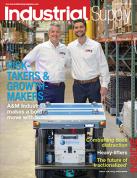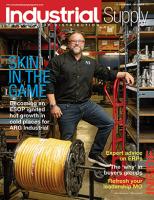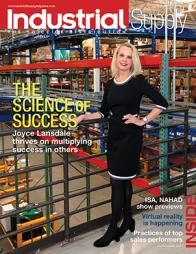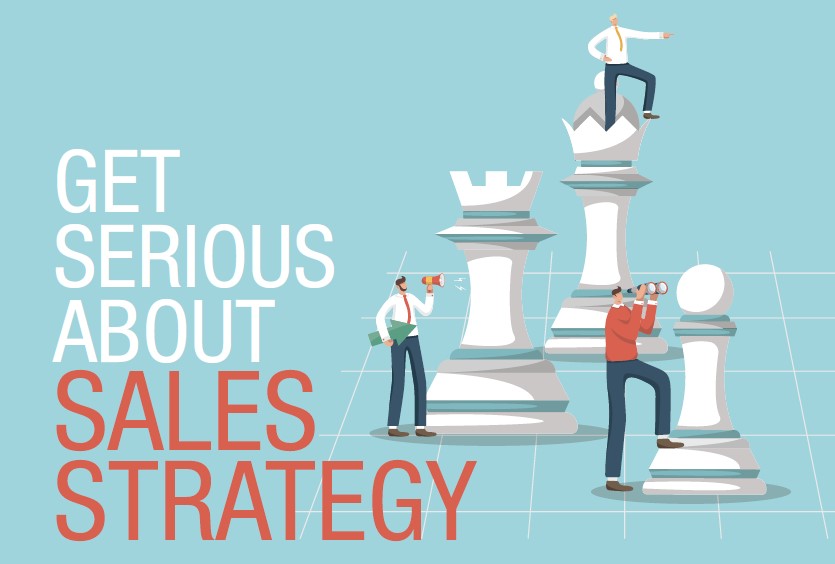 |
| istockphoto.com |
The pros weigh in on best practices for top performers.
by David Kahle
To clarify who we’re talking about, he says the best salespeople are the top 5% in their industry. These are the people who are so far above the mass in their performance that they will often produce about 50% of the sales force’s total revenue, with the other 95% of salespeople producing the other half. So, for example, a sales force of 100 will likely have about five sales masters among them. A sales force of 20 might have one. I call them sales masters, or 5 percenters.
What sets them apart is not their education, their personality, their experience, their gender, their race, their age, the company they work for, the industry they work in or the product they sell. Each of these can have some marginal impact on a salesperson’s performance, but they aren’t near the heart of the issue.
What separates the best from the masses is how they think about their professions and what practices they have instilled as habits. The difference between the 5 percenters and the rest is the degree to which these practices are implemented, refined and repeated. With that as background, here are five of the practices that set the sales masters apart from everyone else.
1 Goal Setting.
Of course, everyone knows about goal setting, but most miss one of its hidden truths: The purpose of setting goals is not necessarily to meet the goals!
The process of goal setting requires a person to identify the most important activities and results in his/ her life. That alone is a worthwhile exercise that would enhance every salesperson’s focus and sense of confidence. But not only do they sort through everything to identify the highest priority, they then put those impulses and intentions into specific written statements to which they commit. Finally, they review their progress regularly, and often have an accountability person or system set up to regularly review progress and suggest mid-term corrections and alternative strategies.
The sales masters understand that, regardless of whether or not they achieve their goals, they have implemented a system to keep them working at the highest priority tasks. They build a system centered on goals in order to channel their behavior most effectively. Because they are focused and intentional, the sales masters invest their time and energy where it will bring them the best results. And it does.
2 Ranking and Prioritizing Key Accounts.
The sales masters understand that not all sales are equal and that not all customers should be invested in equally. So, they develop a system to methodically rank every account – prospects as well as customers – according to their realistic potential, and then consciously invest their sales time in the highest potential. While some of the average salespeople understand the concept, they lack the discipline to objectively rank their customers, allowing their feelings and prejudices to color their rankings.
Those salespeople who methodically apply this discipline invest at least one day every year in rating and ranking their accounts, and then make cold-blooded business decisions about which ones to focus on. The results are often transformational – it is not unusual for a salesperson to report increases of 100% to 200% as a result of methodically implementing this practice.
3 Mastering the Process of Entertaining.
We all know that relationships are the heart of B2B selling. Particularly in the kind of sales process where the salesperson repeatedly calls on the same customers, the depth of the relationship can make all the difference. Sales masters understand that they can dramatically enhance their relationships by spending time with their customers outside of the business environment.
During my days as a field salesperson, I would orchestrate baseball outings three or four times a summer. I lived in Detroit, and I would set up an event that began with dinner at Greektown followed by a Detroit Tigers baseball game. I would typically invite two customers and their spouses, and one manufacturer rep and his/ her spouse, to join me and my wife. There were two rules: nobody talks business, and I pay for everything.
The evenings were always fun, everyone got to know one another better, and business in those accounts always increased – sometimes dramatically so. I can trace one $2 million dollar account directly back to one entertaining event.
Sales masters intentionally and strategically entertain their highest-potential accounts. The average salesperson doesn’t.
4 Continually Investing in Themselves.
Given any randomly selected group of 20 salespeople, only one will have invested $25 of their money on their own improvement in the past year. One out of 20 – 5%.
That statistic dumbfounds me. As a lifetime salesperson, I always enjoyed the challenge of continually improving – no matter how skilled a salesperson may be, he/she is not as good as they could be. There is always room for improvement. The sales masters understand that, and continually read the books, take the courses, attend the webinars, read the newsletters, listen to the podcasts, etc. in the unwavering quest for the next good idea, the next insight that could enhance his/her performance.
The average salesperson can’t be bothered. But the sales masters become 5 percenters and gradually improve until such time as they become masters of their profession, highly skilled and incredibly valuable to their employers.
5 Obsessive Time Management.
Every salesperson hears regular entreaties to use his/her time wisely. Building upon the No. 2 Practice, only the sales masters become obsessed with it. In a world where we are hampered by our own comfort zones and besieged by an unrelenting deluge of distractions, the challenge to use time wisely is one of the greatest challenges for salespeople.
For a field salesperson, the issue of time management comes down to two questions that must be answered, not once, but multiple times in the course of the day: Who should I see? What should I do? Those salespeople who thoughtfully attack those questions create systems to answer them routinely and effectively. Since they are constantly working at the most effective use of their time, they naturally rise to the top. Those who give lip service to time management stay among the masses.
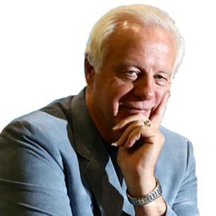
Dave Kahle has trained tens of thousands of B2B salespeople and sales managers to be more effective in the 21st Century economy. He’s authored nine books, and presented in 47 states and eight countries.
 |
| istockphoto.com |
STRATEGIES TO HELP DISTRIBUTOR REPS TO DEAL WITH OBJECTIONS, MEET CUSTOMER DEMANDS
DAN MARKIN, VICE PRESIDENT OF SALES STRATEGY & CONSULTING, THE BROOKS GROUP
1 Shift from “Selling” to “Consultative Problem Solving.” Instead of focusing solely on pushing products or services, distributor reps should adopt a consultative approach. This involves understanding the customer’s needs, challenges, and goals, and then offering tailored solutions to address them. By positioning themselves as problem solvers rather than salespeople, reps can build trust and credibility with customers.
2 Focus on Solving Customer Problems: Rather than emphasizing what they want or need to sell, distributor reps should prioritize how they can help customers solve their problems. This customer-centric approach involves actively listening to customer concerns, asking probing questions to uncover underlying needs, and presenting solutions that align with those needs.
3 View Objections as Unasked Questions: Objections from customers are inevitable, but they should be seen as opportunities rather than roadblocks. Distributor reps should welcome objections as signs of customer engagement and use them as opportunities to address concerns and provide additional information. By addressing objections early in the sales process, reps can increase the likelihood of overcoming them and closing the sale.
4 Build Mutually Beneficial Relationships with Suppliers: Distributor reps should cultivate strong relationships with their suppliers, focusing on collaboration and mutual support. By working closely with suppliers that are customer-centric and responsive, reps can ensure they have access to high-quality products and resources to meet customer demands effectively.
5 Be Honest and Transparent: Honesty is essential in building trust and credibility with customers. If a distributor rep is unable to meet a customer’s expectation, it’s crucial to communicate openly about limitations and explore alternative solutions together. By focusing on what they can do rather than what they can’t, reps can maintain trust and integrity in their customer relationships.
By implementing these strategies, distributor reps can enhance their ability to address objections, meet customer demands, and create more mutual satisfaction and success for both them and their customers. Embracing a consultative approach, prioritizing problem-solving, addressing objections proactively, fostering strong supplier relationships, and maintaining honesty and transparency are key pillars for driving positive outcomes in the sales process.
CHALLENGES OF THE SALES ENVIRONMENT
THOMAS RANGNER, SENIOR VICE PRESIDENT OF OPERATIONS, BLUE VOLT
Some distributors continue to rely on tribal knowledge and experienced inside and outside sales teams. That tribal knowledge is retiring from the industry. The departure of tribal knowledge is resulting in an industry knowledge gap where those entering inside or outside sales roles don’t have mentors or experience understanding the customer’s needs.
Distributor customers have also changed in part due to issues such as labor shortages, challenges with the supply chain, and more. Distributor customers expect the right products, in the right quantity, at the right time. They need to deliver on the jobsite with a reduced workforce, while meeting deadlines, retaining margins, and staying safe.
A knowledgeable distributor sales force is more critical now than ever. Based on conversations with industrial distributors and their suppliers, one of the biggest challenges today on the sales front is industry and application knowledge.
How can a sales or customer service representative sell or upsell products if they don’t know what products are being requested, what the customer’s application is, or how to ask the right questions at the right time?
How can distributor salespeople deal with objections, meet customer demands, and create more mutual satisfaction and success for both customer and distributor?
Training and accountability. It needs to be a message that comes from the top and be a part of an organization’s culture. Training is often overlooked, but with the right program, distributor sales representatives will become a trusted resource to their clients, and their colleagues – strengthening relationships and building repeatable business.
Simple, fast and effective training helps mitigate the loss of tribal knowledge.






